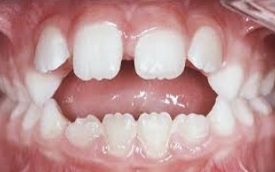Thumb sucking – when should I get worried?
A concern for many parents is their child’s thumb sucking habit; how long will it last and will it affect their teeth?
The good news is: most children grow out of the habit before they start school.
Thumb or finger sucking is a comfort for many young children just like using a dummy. It can help with self soothing and many babies and toddlers use it as a coping mechanism when anxious or separated from their parents. The habit helps to induce sleep, and children may suck their thumbs in the evening before bedtime.
The time to get concerned is if the thumb/finger sucking continues past 4 or 5 years old. By this time, prolonged sucking could begin to affect your child’s mouth and developing jaw and teeth, possibly causing permanent teeth to be misaligned. If your child passively sucks his thumb, the habit may be easier to discourage, but vigorous sucking can lead to changes in the palate that affect the permanent bite and are usually more difficult to end without intervention – listen out for a ‘pop’ when your child removes the thumb/finger from their mouth to determine if your child is sucking vigorously.
Steps to discourage
Usually a child will stop by themselves so often, the best strategy is simply to ignore the behavior. Children will figure out on their own when this behavior is not acceptable from social situations and peer pressure.
- Offer babies a dummy – it is easier to take a dummy away
- Have a reward chart for reducing and stopping the thumb/finger sucking
- Encourage and praise your child as they reduce and stop thumb/finger sucking
- Speak to your dentist about this habit and get your child’s teeth checked to see if any permanent changes are occurring
If your child is finding it hard to give up their thumb/finger sucking habit, maybe try the products you can paint onto nails, use a glove or a sock on the fingers or just a Bandaid or in older children even acrylic nails may help. Whatever you choose, keep things encouraging and positive as criticism or nagging may cause more anxiety and perpetuate the problem.
What effects may occur?
 If the habit continues beyond the age of five or six, the pressure and sucking motion will begin to make changes to the mouth and teeth. The front teeth may jut out, and the child’s bite will be open, not allowing the upper and lower front teeth to touch. The skeletal changes will begin to affect the alignment of the permanent or secondary teeth. Your child’s dentist can evaluate the changes and provide a referral to an orthodontist or pediatric dentist for a consultation.
If the habit continues beyond the age of five or six, the pressure and sucking motion will begin to make changes to the mouth and teeth. The front teeth may jut out, and the child’s bite will be open, not allowing the upper and lower front teeth to touch. The skeletal changes will begin to affect the alignment of the permanent or secondary teeth. Your child’s dentist can evaluate the changes and provide a referral to an orthodontist or pediatric dentist for a consultation.
The sooner the habit is stopped, the better the chance that the bite will correct itself.
At Dentistry on King, Buderim we can check for any problems at your child’s regular 6 monthly checkups. Call now 5445 3110 or click here to make your appointment.
Article Courtesy Of Health QLD see full article and more here @ healthier.qld.gov.au







